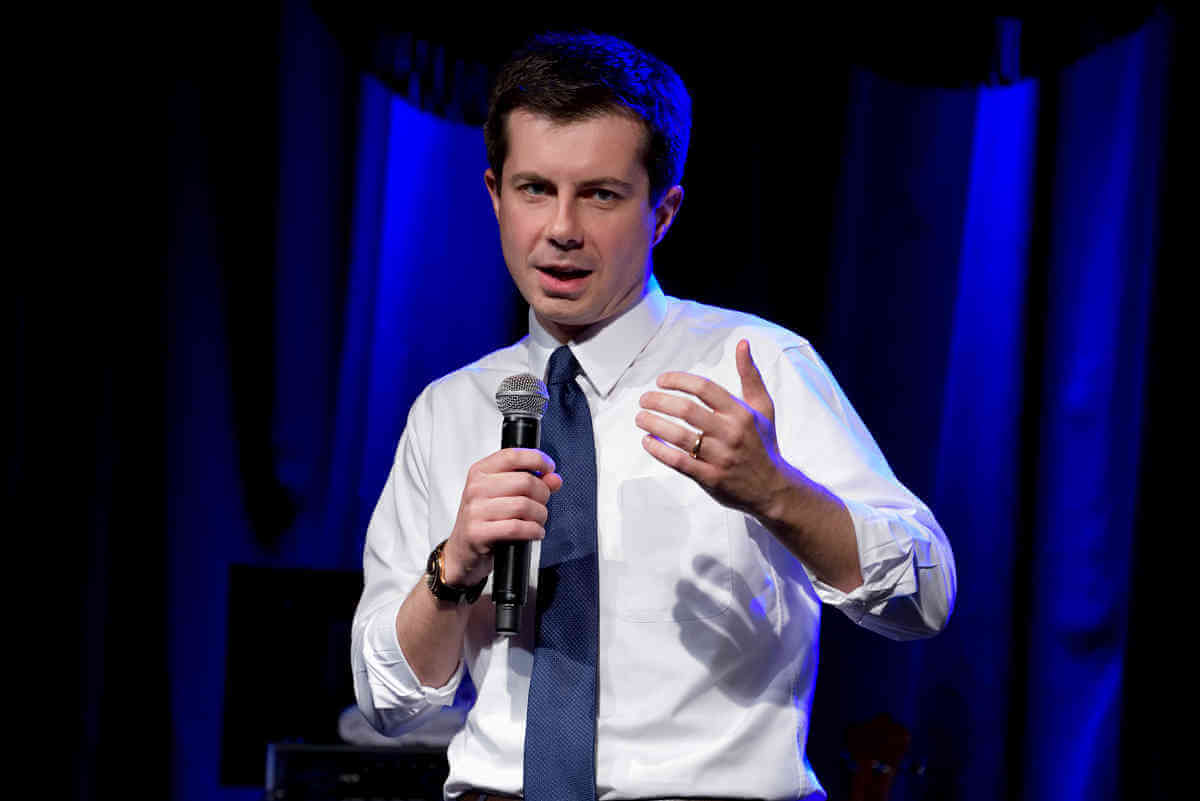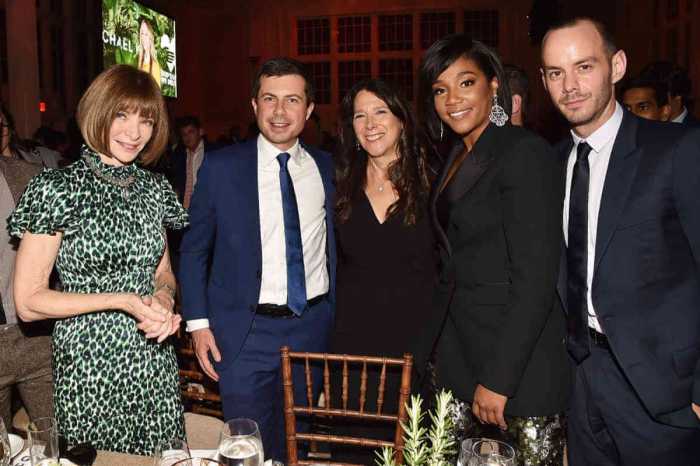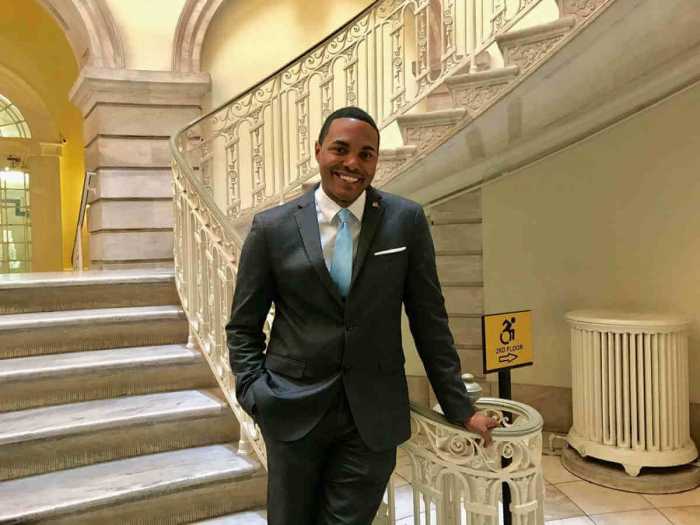One day after officially announcing his candidacy for president and just hours before he appeared with MSNBC’s Rachel Maddow, where the two swapped coming out stories, South Bend Mayor Pete Buttigieg held a fundraiser at the Brooklyn Bowl in Williamsburg.
The April 15 event, at which he appeared with his husband, Chasten Glezman Buttigieg, as well as his mother, Ann Montgomery, drew several hundred people eager to see the candidate whose early buzz is the most surprising phenomenon at this early point in the Democratic primary contest.
The Brooklyn Bowl crowd was largely young and it was largely white, a striking reality the candidate was called upon to address. Acknowledging that relatively few in the crowd were from communities of color, Buttigieg emphasized that however much President Donald Trump has polarized racial and ethnic communities, the divisions were already longstanding and too long unaddressed.

Buttigieg, who is presenting himself as a different kind of candidate — as he said in South Bend the day before, “from the generation that grew up with school shootings as the norm, the generation that produced the bulk of the troops in the post-9/11 conflicts, the generation that is going to be on the business end of climate change for as long as we live” — will have to diversify the communities he can connect to if he is going to be a real player in a Democratic field that already includes two African-American men, a woman with African-American and Asian roots, a woman with Samoan roots, a Latino man, an Asian man, and four white women.
In his April 14 announcement speech in Indiana, Buttigieg mentioned “racial justice” as one of the “freedoms’ conservatives rarely talk about. Charging that conservatives typically talk about “freedom from… taxes [and] regulation,” the South Bend mayor also included in his litany of critical freedoms “health care,” “consumer protection,” “empowering teachers,” “women’s equality,” and “organized labor” — as well as freedom from “a county clerk get[ting] to tell you who you ought to marry based on their political beliefs.”
In the South Bend speech, Buttigieg also talked about parts of his biography many believe would appeal to voters in states won three years ago by Trump — including his overseas military service and his Episcopalian faith.

Referring to South Bend’s loss in 1963 of a Studebaker auto plant, Buttigieg said, “I ran for mayor in 2011 knowing that nothing like Studebaker would ever come back — but believing that we would, our city would, if we had the courage to reimagine our future.”
The “Make America Great Again” myth, he said, is “being sold to industrial and rural communities: the myth that we can stop the clock and turn it back” by politicians “who think the only way to reach communities like ours is through resentment and nostalgia, selling an impossible promise of returning to a bygone era that was never as great as advertised to begin with.”
Then, he added, “The problem is, they’re telling us to look for greatness in all the wrong places.”

Alluding again to his youth — he is 37 — Buttigieg also said, “If America today feels like a confusing place to be, it’s because we’re on one of those blank pages in between chapters. Change is coming, ready or not.”


































